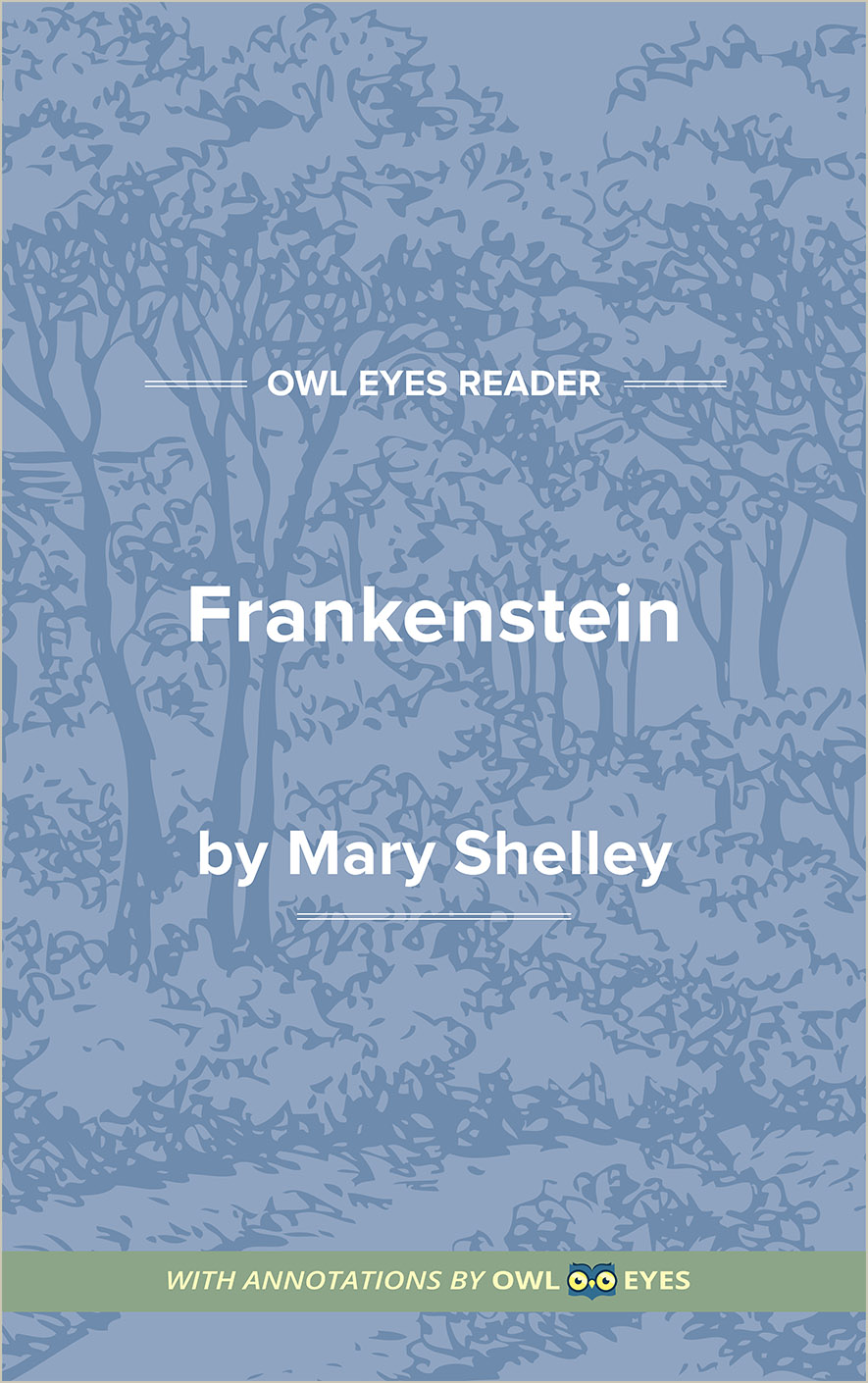Analysis Pages
Metaphor in Frankenstein
Metaphor Examples in Frankenstein:
Letter IV
🔒"draught..." See in text (Letter IV)
Chapter III
🔒"one by one the various keys were touched which formed the mechanism of my being: chord after chord was sounded, and soon my mind was filled with one thought, one conception, one purpose...." See in text (Chapter III)
Chapter IV
🔒"a churchyard was to me merely the receptacle of bodies deprived of life, which, from being the seat of beauty and strength, had become food for the worm...." See in text (Chapter IV)
Chapter XVI
🔒"allowing myself to be borne away by the stream, I bent my mind towards injury and death..." See in text (Chapter XVI)
Chapter XX
🔒"The night passed away,..." See in text (Chapter XX)

